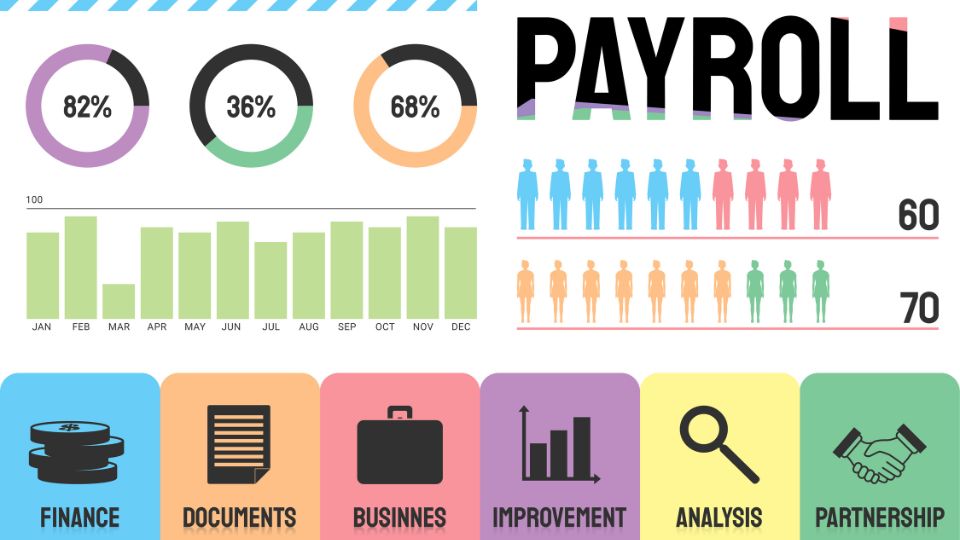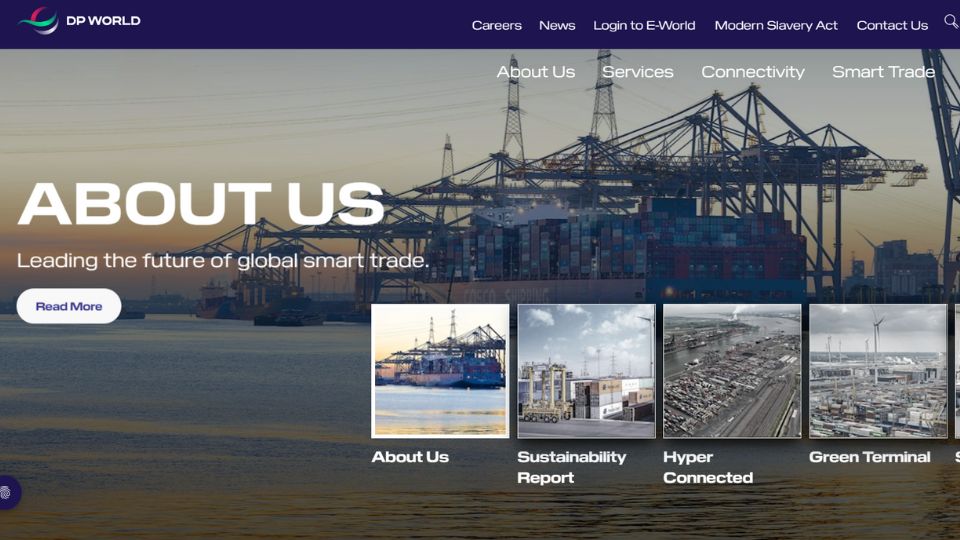Are manual HR processes costing you more than you think? While they may initially seem straightforward and cost-effective, these manual tasks tend to drain your resources.
Managing HR in a Gulf Cooperation Council (GCC) organization has unique challenges. Strict compliance requirements, repetitive paperwork, and error-prone workflows drain time and create risks.
These inefficiencies slow down operations and lead to hidden costs that impact your bottom line.
So, what’s the solution?
Oracle’s HCM is a great option for enterprises looking to move from distributed and manual processes to a centralized HR system.
In this article, you’ll discover the hidden costs of manual HR management and learn how Oracle HCM can transform your HR operations into a smarter, more efficient system.
Let’s break down where these manual processes cost your business more than you realize.
The Hidden Costs of Manual HR Processes

While managing HR manually seems simple, the hidden costs can be staggering. It can impact everything from financial stability to employee satisfaction.
Let’s explore these HR challenges deeper:
1. Financial Costs
Have you ever calculated how much time and money your HR team spends on manual tasks? Every data entry, payroll calculation, or compliance check adds up.
According to EY data, manual HR processes can cost your organization almost $5 per data entry.
Now, multiply that by hundreds of employees and multiple processes every month. The financial strain quickly becomes significant.
For GCC organizations, the costs are even higher due to complex, region-specific compliance requirements.
A single payroll mistake can result in fines, dissatisfied employees, and compliance violations.
With labor laws in the GCC being strict and penalties severe, the risks are too high to ignore.
2. Productivity Loss
Did you know that manual HR processes can significantly impact team productivity?
According to a Deloitte study1, HR staff spend up to 57% of their time on administrative tasks, which significantly reduces efficiency and slows down strategic initiatives.
This happens because HR teams spend much of their day on repetitive tasks like approving leave requests, calculating overtime, and tracking down employee paperwork.
Now, imagine if that time was spent on strategic planning to drive your business forward.
For fast-growing organizations, these inefficiencies become a major roadblock to scaling effectively.
3. Employee Experience
Do your employees frequently face delays in leave approvals or experience paycheck errors? These are common issues with manual HR processes that directly impact employee satisfaction.
Employees nowadays expect fast, efficient, and seamless HR experiences. When these expectations aren’t met, retaining top talent becomes quite a task.
In GCC organizations a large portion of the workforce consists of international employees so providing a smooth HR experience is crucial.
4. Compliance Risks
Compliance in the GCC demands constant attention to detail.
Regulations like Wage Protection Systems (WPS) and End-Of-Service Benefits (EOSB), require accuracy and timeliness.
However, when HR processes are handled manually, the risk of missed deadlines and errors increases.
Moreover, non-compliance can harm your reputation, making it difficult to maintain trust and credibility in a competitive market.
Let’s understand how you can overcome these challenges.
How Oracle HCM Solves Manual HR Challenges

Oracle HCM is designed to address these challenges head-on, offering GCC organizations a smarter way forward.
1. Automation
Manual HR tasks like payroll calculations, leave approvals and compliance tracking consume valuable time and increase the risk of errors.
Oracle HCM automates these repetitive processes, allowing your HR team to focus on strategic work.
For example, manually calculating EOSB can take hours, whereas Oracle HCM automates this process, ensuring compliance with GCC labor laws, and saving significant time.
2. Localization
Compliance with labor laws in GCC countries like the UAE, Saudi Arabia, and Qatar is non-negotiable.
Missing a WPS update or failing to adhere to regulations can lead to hefty fines and reputational damage.
However, Oracle HCM automatically updates any changes in labor laws, eliminating the need for manual tracking.
The platform provides pre-built templates that simplify compliance reporting and minimize administrative adjustments.
Additionally, it supports multiple languages, allowing employees from diverse backgrounds to use the platform in their preferred language. This enhances efficiency and promotes a more inclusive HR experience.
3. Advanced Analytics
Relying on spreadsheets or outdated systems makes it hard to track workforce trends.
Oracle HCM uses advanced analytics tools to provide real-time insights. These insights help you to predict turnover, identify workforce trends, and make data-driven decisions.
For instance, you can identify employees at risk of leaving and implement strategies to retain them.
Additionally, the user-friendly dashboards allow you to monitor attendance patterns and spot performance gaps, ensuring efficient resource allocation.
4. Employee Self-Service
Oracle HCM provides a user-friendly self-service portal, where employees can manage routine tasks independently.
Employees can submit and track leave requests in real-time, ensuring a smooth approval process. They can access pay slips, tax documents, and other essential records instantly, whenever needed.
It also lets you update personal details, such as address or bank information, without HR intervention.
This smooth process helps in employee satisfaction and reduces HR workloads.
Let’s analyze how Oracle HCM stands against the manual HR process.
Comparative Analysis: Manual HR Processes vs. Oracle HCM

Here’s a side-by-side comparison of manual HR processes and Oracle HCM:
| Factors | Manual HR Processes | Oracle HCM |
| Accuracy | Prone to costly errors. | Automates calculations, ensuring accuracy. |
| Compliance | Hard to keep up with regulations. | Updates automatically for GCC labor laws. |
| Employee Experience | Frustrates employees with delays and errors. | Improves satisfaction with self-service tools. |
| Cost | Hidden costs in fines and inefficiencies. | Provides measurable ROI by reducing errors and increasing efficiency. |
| Time Efficiency | Time-consuming and repetitive. | Speeds up processes. |
Real-Life Example: DP World Antwerp’s Transformation with Oracle Cloud HCM

DP World Antwerp, a leading logistics operator, faced challenges with fragmented HR systems, inconsistent data, and slow manual workflows.
Their existing system was time-consuming and lacked real-time insights for strategic workforce decisions.
To overcome these issues, DPW Antwerp adopted Oracle Cloud HCM to streamline HR operations. This platform unified all manual processes like recruitment, benefits administration, and absence management into a single system.
With Oracle, they automated key tasks and consolidated core HR functions. It improved their data accuracy, enhanced compliance tracking, and boosted overall efficiency.
This success story reflects how Oracle HCM Fusion can modernize HR systems and automate key processes, driving greater productivity and precision.
| Are Manual HR Processes Draining Your Resources? Discover how Oracle HCM can help you optimize HR processes, reduce costs, and drive efficiency. Book a strategy call today |
Conclusion
The cost of inaction is high. Every delay increases compliance risks, talent loss, and wastes resources.
While manual HR processes in GCC organizations seem manageable at the surface, they come with their own set of risks. As labor laws evolve and workforce expectations rise, these inefficiencies will only grow.
Oracle HCM offers a smarter way forward. It automates key HR functions, ensuring compliance, and providing real-time insights.
This helps reduce risks, improve efficiency, and enhance the employee experience.
Now is the right time to make the switch.
Book a call today to explore Oracle HCM’s features and take control of your HR processes.
Frequently Asked Questions
1. What are the risks of continuing with manual HR processes?
Manual HR processes expose your organization to payroll errors, compliance violations, and inefficiencies that waste time and resources.
2. How does Oracle HCM handle GCC-specific compliance?
Oracle HCM is tailored to meet GCC labor law requirements. It automatically updates and reflects changes in regulations, such as wage protection systems (WPS) and end-of-service benefits (EOSB).
It also ensures your organization remains compliant without the need for manual oversight.
3. What is the ROI of implementing Oracle HCM?
Implementing Oracle HCM delivers measurable ROI through lower administrative costs, improved compliance, and increased efficiency.
Organizations benefit from streamlined operations and enhanced employee satisfaction, which leads to improved productivity and efficiency.
4. Can Oracle HCM integrate with existing systems?
Yes, Oracle HCM integrates smoothly with ERP systems, payroll tools, and other third-party applications.
This system ensures a smooth transition and allows your HR systems to function without disrupting daily operations.
- Deloitte. Future of Work: Accelerating Productivity with ServiceNow & Deloitte. ↩︎
